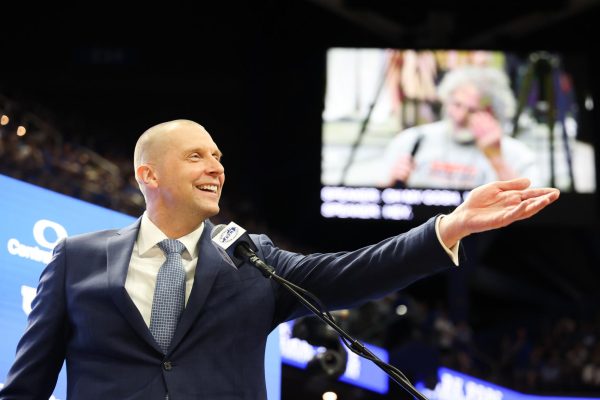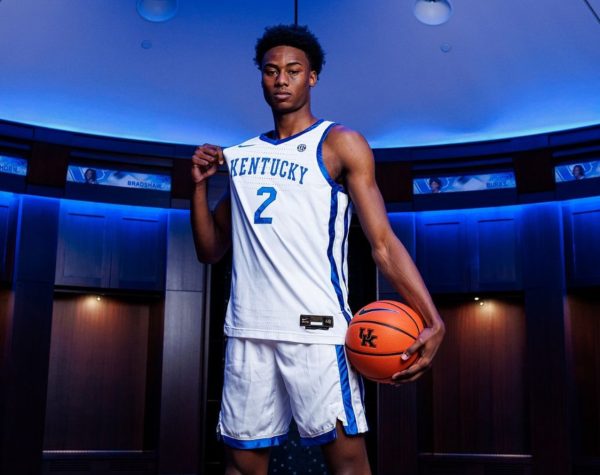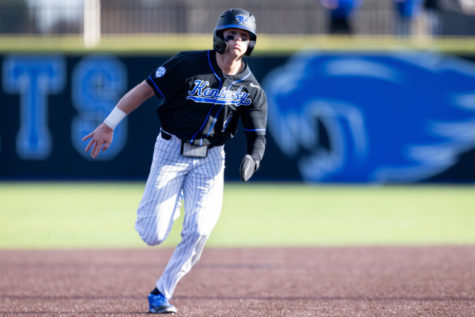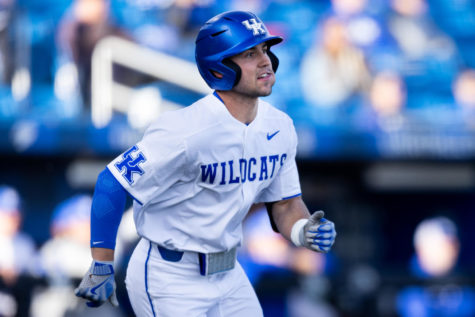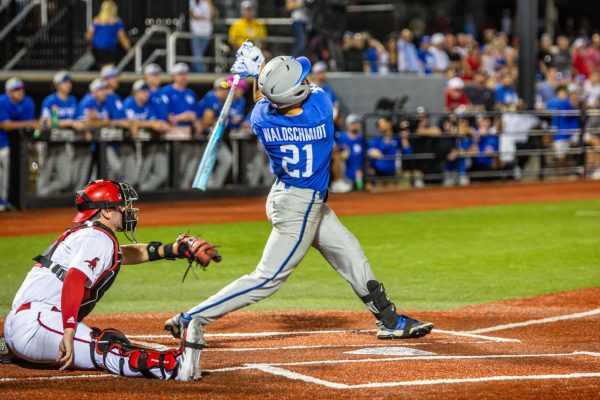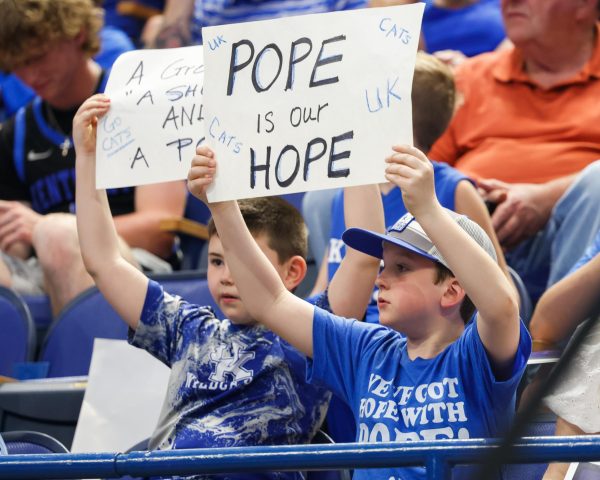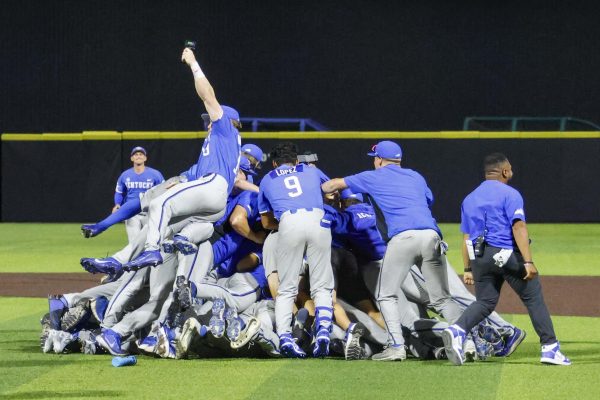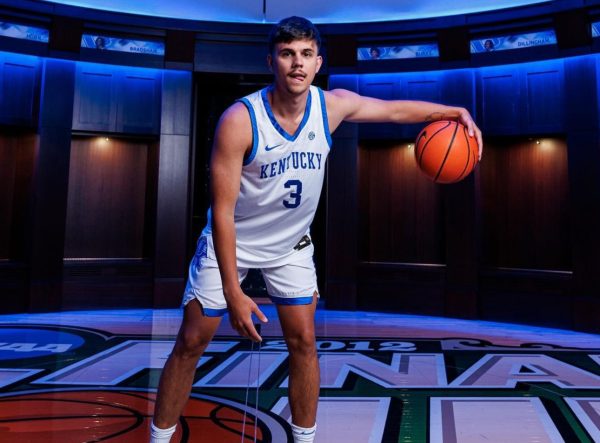Within swinging distance
February 19, 2008
After overcoming injury, boxer is primed for title run
Jamyle Cannon danced around the ring, eyeing his opponent during a match leading up to the 2007 boxing national championships.
Cannon threw a powerful right hook, a punch he had landed successfully countless times. But his opponent lunged forward, stepping into the blow, causing Cannon’s punch to land awkwardly. Cannon finished and won the match.
The 139-pound boxer had always dreamed of winning a national championship, and after that match, he was just two bouts away from making his dream a reality.
But Cannon did not know the awkward hook had caused a small tear in his right rotator cuff. He continued to compete, hoping to reach his goal — a national championship belt — until déjà vu struck in a quarterfinal match.
As a wildcard selection in the national championships, Cannon landed another awkward right hook, further tearing his rotator cuff. There was no mistaking the injury this time.
“I couldn’t feel my arm or pick it up even,†Cannon said.
Cannon fought the rest of the match with only one arm, hoping he had enough energy to knock his opponent out. His effort was in vain. He lost the match by points. Cannon would not be a champion in 2007.
“It was extremely disappointing to not come away with the win when I was expected to,†he said.
Cannon, a social work and pre-law sophomore, endured 10 months of rehabilitation as his shoulder healed, and he only started boxing on a daily basis a month ago.
Dr. George Ginter, an anesthesiologist and head coach of UK’s club boxing team, said collegiate boxers tend to hit their peak during their sophomore year. But Cannon was gifted enough that he began reaching it as a freshman, Ginter said.
Now Cannon trains in the basement of Alumni Gym, a place he and the rest of the UK boxing club call home, and he still dreams of a national championship.
Despite the lengthy rehab, Cannon said this year the road to the national championship will come through him or the Naval Academy’s Antone Aku, who went on to win the 2007 title. Without realizing he had a torn rotator cuff, Cannon dropped a hard-fought bout in the regional tournament to Aku, who he calls his “personal rival.â€
The two fighters face off again Feb. 29 in Louisville. Cannon knows if he can beat Aku this time, he will gain momentum heading into the regional tournament.
“Aku is a really good guy, but once we step inside the ring, all I can think about is he is going down,†Cannon said. “I don’t care how cool he is — I want that belt.â€
Cannon turned down playing Division I football for boxing, a non-scholarship sport that is not sanctioned by the NCAA.
Indiana and Purdue universities offered Cannon a full ride to play free safety on the schools’ football teams, but he declined. Cannon is at UK on an academic scholarship and said he just followed his heart in pursuing boxing.
“I liked football, but I never loved it,†Cannon said. “I always loved boxing and now I have a chance to win a national championship. You can’t beat that.â€
Cannon’s father, Robert Cannon, was a professional boxer who qualified for the U.S. Olympic Team in 1988.
Despite his father’s background in the sport, Cannon is boxing against his mother’s and grandmother’s wills. Cannon said his mother believes every boxer will, like Muhammad Ali, suffer from life-altering side effects. The former heavyweight champion of the world now has Parkinson’s disease, a neurological syndrome that causes tremors, slowness in speech and a decline in motor skills. Doctors have said Ali’s condition is likely caused by his boxing career.
“Every time I go home, I just hear how I shouldn’t be boxing,†Cannon said. “She always tells me I’m going to end up like Ali, so it limits how much I go home.â€
Cannon said he feels much safer in the boxing ring than he ever did on the football field.
The NCAA stopped sanctioning boxing in 1961, because the organization felt it was too dangerous a sport for college students. College boxing is now sponsored by the National Collegiate Boxing Association, a non-profit organization that started in 1976 and now includes 26 schools that compete for a team national championship every year.
The schools are split into three regions. The top two competitors in each weight class from the three regions qualify for the national championships, along with two wildcard boxers picked by the NCBA.
Cannon is looking to become UK’s first national boxing champion since Chad Gilpin won the title three years ago.
With his match against Aku in two weeks and regional championships — which will be held at UK’s Buell Armory — starting in a month, Cannon has begun his pre-match routine. He runs Monday through Thursday before classes start. Once finished, he goes to practice for two and a half hours in the gym, which he says looks like a scene out of “Rocky.â€
Cannon now trains with hopes that all the work will help him achieve his national-championship dreams.
“Getting that belt will just show that it all has paid off,†Cannon said. “I’ve put a lot into boxing and to get something that shows that would just be amazing.â€









































































































































